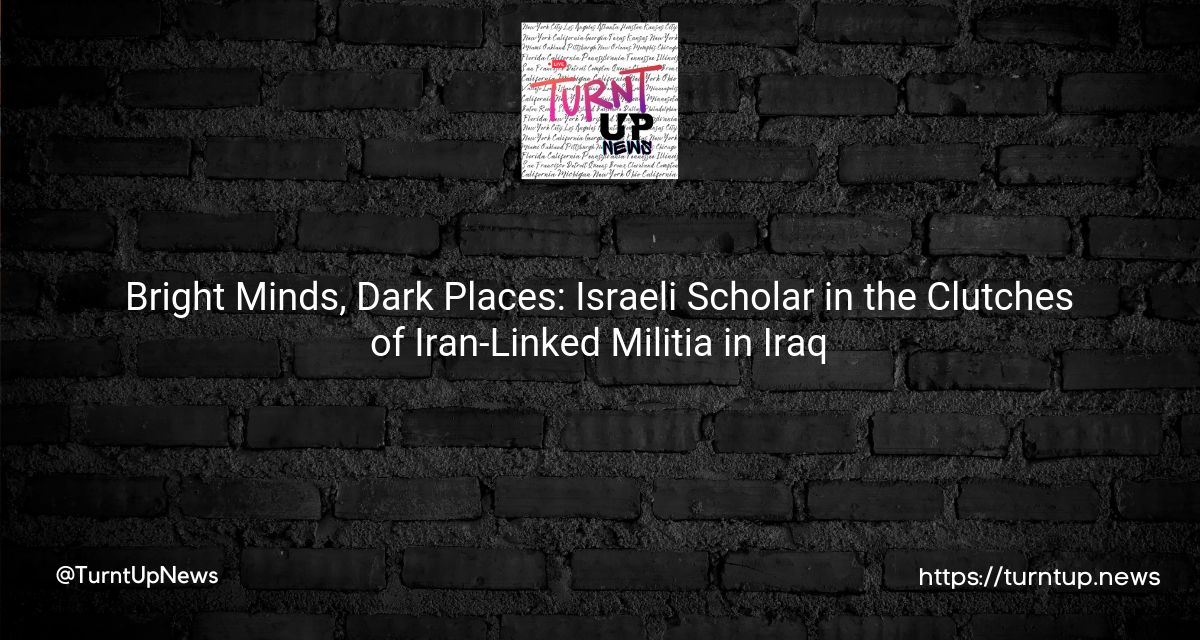🧐📚Bright Minds, Dark Places: Israeli Scholar in the Clutches of Iran-Linked Militia in Iraq💥🌍
**TL;DR;**😲🗞️: Israeli-Russian student, Elizabeth Tsurkov, while buried in her doctoral research in Baghdad, finds herself unexpectedly snatched by a Shiite militia, affiliated with Iran. Despite her family’s quiet attempts to negotiate her release, the news has broken out. Now, both Israel and Russia are playing a diplomatic tug-of-war, trying to secure her release.
Dedicating oneself to the pursuit of knowledge can sometimes put you in places darker than the stacks in a library’s basement. Our latest character to make this discovery? 👩🎓Elizabeth Tsurkov, a Russian-Israeli citizen studying at Princeton University. Instead of sipping on chai in a cozy Princeton library, she’s unfortunately spending her time as a guest (read: captive) of a Shiite militia in Baghdad. 🤔Makes you wonder: Does the pursuit of knowledge warrant such risk?
As an expert on Middle Eastern affairs, Tsurkov found herself conducting field research in the bustling Karrada district of Baghdad when the Shiite militia, Kataib Hezbollah, whisked her away. Talk about a rude interruption! Notably, this militia is tight-knit with Iran and carries a reputation for such “unplanned meet and greets” with foreigners. 🙄Seriously though, who needs enemies with friends like these?
But wait, it gets spicier! The Israeli Prime Minister’s office drops a statement holding Iraq accountable for her safety, all while Tsurkov’s family, back home, tries to silently negotiate her release. Makes us question, how effective is the silent approach when international borders and powers are involved? 🌍🤷♀️
Israel’s statement just so happened to coincide with foreign media sniffing out Tsurkov’s kidnapping. Now, Russian and Israeli officials are scrambling together in a thrilling espionage-like mission to get the researcher back.🕵️♀️🔍
Known for her bravery and dedication to her hyperlocal research, Tsurkov didn’t let the fact that parts of the Middle East consider her identity a risk deter her. Instead, she courageously chose to stay and continue her work in Iraq. 🎯Talk about passion, right?
Tsurkov’s academic venture in Iraq, under her Russian passport, was all for her doctoral research. This was despite the fact that Iraq criminalizes relations with Israel or Israeli citizens. Hmm…🤔 makes you wonder, shouldn’t universities better assess the risks involved in such research ventures?
The news of this abduction reopens old wounds for the Princeton community. Less than two years ago, another doctoral candidate, Xiyue Wang, accused the university of negligence during his three-year imprisonment in Tehran on espionage charges. He too was there conducting academic research. What’s happening Princeton, should we start calling you the “spy university”? 😅
In all seriousness though, Tsurkov’s situation raises important questions about the role universities play in protecting their students when field research crosses into risky territories. What do you think, should academic institutions impose stricter measures to safeguard their students, or is the thrill of field research part of the academic journey? 🎓🌍 Let’s chat about it!





